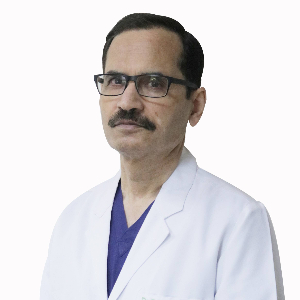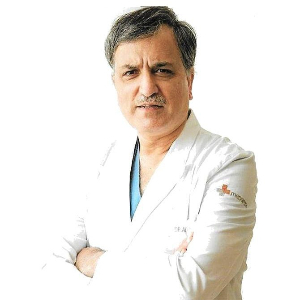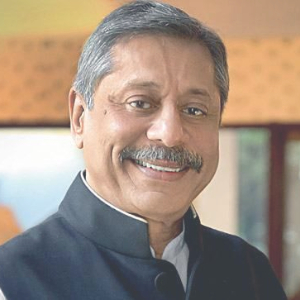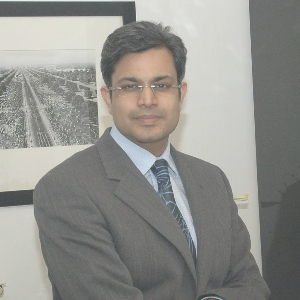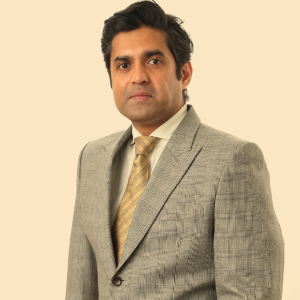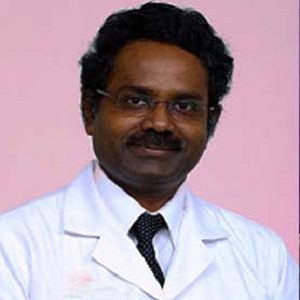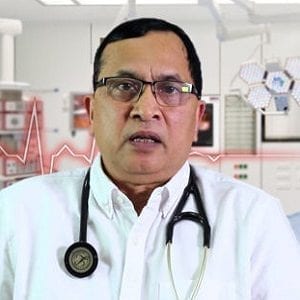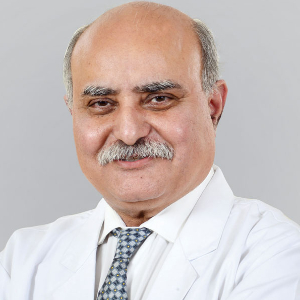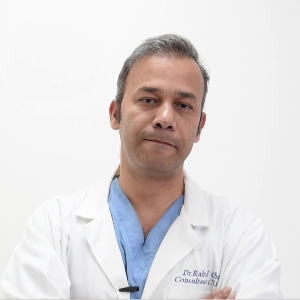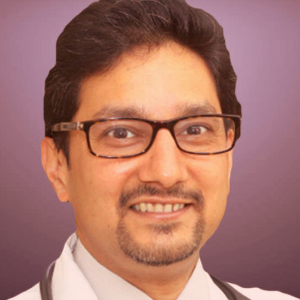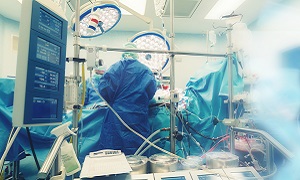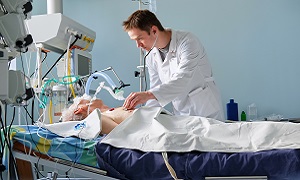Best Lung Transplant Surgeons in India
- Cardiac Surgeon, New Delhi, India
- Over 30 years’ experience
Profile Highlights:
- Dr. Z S Meharwal is a well-known cardiac surgeon in India who has performed over 20,000 cardiac surgeries, including some of the most complex and high-risk cardiac procedures.
- Dr. Meharwal is a member of the founding team that started the Fortis Escorts Heart Institute and has been associated with the hospital since then.
- His interest lies in Minimally Invasive Cardiac procedures, valve repair, and replacement, and heart transplants among other major vascular and thoracic surgeries.
- Cardio Thoracic & Vascular Surgeon, Gurugram, India
- Over 35 years’ experience
Profile Highlights:
- Dr. Anil Bhan is an excellent Cardiovascular and thoracic surgeon who has performed more than 15,000 cardiac and vascular surgeries that include heart transplant surgery, aortic aneurysm surgery, pediatric cardiac surgery, valve repairs, and peripheral vascular surgery among several others.
- He is one of the best pediatric cardiac surgeons in Delhi/ NCR and is credited with performing heart bypass surgery on the youngest patient in India in 2007 (18 months).
- He performed the first extracorporeal membrane oxygenation and was the first to use a harmonic scalpel for harvesting radial mammary artery conduits in India in 2000 and 1995 respectively.
- Cardiac Surgeon, Gurugram, India
- Over 40 years’ experience
Profile Highlights:
- Dr. Naresh Trehan is one of the most highly skilled and globally recognized cardiothoracic and vascular surgeons.
- He started his career as a Cardiac Surgeon at New York University Medical Centre where he performed over 3000 coronary artery surgeries and returned to India in 1988 and founded the Escorts Heart Institute and Research Center in New Delhi.
- Dr. Trehan is the Founder Chairman of Medanta- The Medicity in Gurugram, a premier multi-specialty hospital with state-of-the-art infrastructure and equipped with the latest and advanced technologies.
- Cardio Thoracic & Vascular Surgeon, New Delhi, India
- Over 16 years’ experience
Profile Highlights:
- Dr. Mukesh Goel is a reputed Cardio-Thoracic and Vascular surgeon serving as a Senior Consultant of the specialty at Indraprastha Apollo Hospital, New Delhi.
- He carries an experience of 16+ years and has performed more than 3000 different cardiac surgeries. Dr. Mukesh Goel is constantly on the lookout to develop new and innovative techniques to perform cardiac procedures that help in quick recovery with minimum incisions.
- His expertise lies in on and off-pump bypass surgeries and also finds interest in beating heart bypass surgery, open-heart surgery, minimally invasive heart valve surgery, and pediatric cardiac surgery among several others.
- Dr. Mukesh Goel received his training in CTVS from one of the most renowned cardiac surgeons in India, Dr. Naresh Trehan, and has been using the exposure to perform various advanced and complex heart surgeries.
- Before joining Indraprastha, Dr. Goel has been associated with other prestigious heart centers in India like Escorts Heart Institute, Apollo Hospital in New Delhi, and Medanta in Gurugram where he helped in starting the Heart surgery unit.
- He frequently gets invited to attend cardiology conferences and seminars to deliver lectures and present papers. He also regularly takes part in workshops and CMEs for cardiac surgeries.
- Dr. Mukesh Goel is a keen researcher and has published a number of papers and articles on CTVS in renowned national and international medical journals.
- Heart & Lung transplant Surgeon, Hyderabad, India
- Over 20 years’ experience
Profile Highlights:
- Dr. Sandeep Attawar is a highly recognized Heart and Lung transplant surgeon in India who has over 2 decades of experience as a cardiac surgeon and has performed more than 10,000 cardiac surgeries on adult and pediatric patients.
- Dr. Attawar specializes in all types of surgeries for adults as well as pediatric heart patients and finds interest in heart and lung transplant surgery, congenital heart surgery, Aortic aneurysm repair, and implantation of heart failure devices.
- Cardiac Surgeon, Cardiothoracic Surgeon, Vascular Surgeon, Chennai, India
- Over 25 years’ experience
Profile Highlights:
- Dr. K Madhan Kumar is a well-known Cardiac Surgeon in Tamil Nadu, having many years of experience in the domain.
- His experience came from practice and teaching. These days, he is associated with Apollo Hospital Greams Road in Chennai as a Senior Consultant Cardiothoracic & Transplant Surgeon.
- Dr. Kumar has also completed Fellowships in Cardiothoracic Surgery at SGH in London as well as ECMO, VAD, and transplantation at HH in London.
- Cardio Thoracic & Vascular Surgeon, New Delhi, India
- Over 30 years’ experience
Profile Highlights:
- Dr. Bhaba Nanda Das is a well-known cardiovascular and cardiothoracic surgeon and has performed the first Coronary Artery Bypass Grafting (CABG) on a beating heart in India.
- He has performed over 20,000 cardiac surgeries and does more than 800 cardiac surgeries annually.
- With a keen interest in cardiovascular and thoracic procedures, Dr. Das is the first cardiac surgeon to use all arterial grafts for multiple coronary revascularizations. He was also the first to use coronary sinus in Fontan’s circulation.
- Cardio Thoracic & Vascular Surgeon, New Delhi, India
- Over 30 years’ experience
Profile Highlights:
- Dr. Ajay Kaul is a leading name in the field of Cardiothoracic and Vascular Surgery in India with over 3 decades of experience.
- He specializes in Coronary Bypass surgery and is one of the best with the highest number of total arterial coronary bypass surgery (4000+) by using two internal mammary arteries from the chest and without any cuts on arms and legs.
- He is also an expert in minimally invasive cardiac surgeries (MICS) and has performed more than 4000 MICS which is the highest by any cardiac surgeon in India.
- Senior Cardiothoracic and Heart Lung Transplant Surgeon, New Delhi, India
- Over 23 years’ experience
Profile Highlights:
- Dr. Rahul Chandola is a renowned cardiothoracic and vascular surgeon in India specializing in Adult CTVS along with heart and lung transplant surgeries.
- He is an expert heart and lung transplant surgeon and has performed over 100 heart transplant surgeries with successful results in both adult and pediatric patients.
- Currently, he works as a Senior Cardiothoracic and Heart Lung Transplant Surgeon in PSRI Hospital, New Delhi.
- Interventional Cardiologist, New Delhi, India
- Over 20 years’ experience
Profile Highlights:
- Dr. Vishal Rastogi is a leading Interventional Cardiologist in Delhi specializing in Heart Failure Management.
- Dr. Vishal Rastogi has over 20 years of experience in the field and holds the credit for the largest number of Impella Left Ventricular Assist Device (LVAD) implants in critically ill patients in India.
- He has performed a large number of Coronary and Peripheral Angiographies and diagnostic cardiac catheterizations in both adult and pediatric patients among several other interventional cardiac procedures.
Best Lung Transplant Hospitals in India
Indraprastha Apollo Hospital, New Delhi
- City: New Delhi, India
Hospital Highlights:
- Indraprastha Apollo Hospital is a 700-bedded multispecialty hospital in the heart of the capital of India. It is a part of Apollo Hospital group, one of India’s most reputed healthcare chains. Indraprastha Apollo Hospital has been accredited by Joint Commission International, making it the first internationally accredited hospital in the country in 2005.
- There are 52 specialties in the hospital with one of the best cardiology centers in the country. The hospital is also equipped with State of the art infrastructure facilities with the largest Sleep Lab in Asia and the largest number of ICU bed facilities in India.
- The hospital also has one of the largest dialysis units in India along with a dedicated Bone Marrow Transplant unit.
- The latest and highly advanced technologies that are installed in the hospital include Da Vinci Robotic Surgery System, PET-MR, PET-CT, Cobalt-based HDR Brachytherapy, Brain Lab Navigation System, Tilting MRI, Portable CT scanner, 3 Tesla MRI, 128 Slice CT scanner, DSA Lab, Endosonography, Hyperbaric Chamber and Fibro scan.
Fortis Memorial Research Institute, Gurugram
- City: Gurugram, India
Hospital Highlights:
- Fortis Memorial Research Institute is a multi-super-specialty, quaternary care hospital with 1000 beds. The hospital comprises reputed clinicians, and international faculty and is also equipped with cutting-edge technology. The hospital is a part of Fortis Healthcare Limited, a reputed chain of private hospitals in India.
- It is a NABH-accredited hospital that is spread across 11 acres of land and has a capacity of 1000 beds. The hospital has 55 specialties and is one of the premier health care centers in the Asia Pacific region popularly known as “the Mecca of Healthcare”.
- The hospital has 260 diagnostic centers and is also equipped with the latest and advanced techniques that include 3 Telsa which is the world’s first Digital MRI technology. The hospital also has world-class Radiation Therapy techniques which have been developed by leading technology experts from Elekta and Brain Lab.
Apollo Hospital, Chennai
- City: Chennai, India
Hospital Highlights:
- Apollo Hospitals, Chennai, is one of the best hospitals for heart care in India. Over the years, Apollo has expanded all over India, as a healthcare chain.
- India’s first ‘Only Pancreas’ transplant was performed in Apollo Hospital. The hospital is known for successfully performing Asia’s first en-bloc combined heart and liver transplant, and over the years, it has attained a remarkable achievement in the global healthcare space. Around 3-4 organ transplants are performed in the hospital per day.
- Equipped with over 500 beds, this hospital in Chennai was established in 1983 and since then has been among the most preferred hospital for patients from all over the world.
- The hospital holds accreditation of the NABH and JCI and is the first hospital in India to be ISO 9001 and ISO 14001 certified. It is also the first South Indian Hospital to receive subsequent reaccreditation from the JCI USA 4 times.
Medanta-The Medicity, Gurgaon
- City: Gurugram, India
Hospital Highlights:
- One of India’s best and largest multi-specialty hospitals, Medanta was built with the aim to bring India to the highest standards of medical care. The hospital has been providing the best medical services to its patients, since its inception, with care, commitment, and compassion.
- Equipped with 1250 beds, the hospital was founded by Dr. Naresh Trehan in the year 2009 with an aim to provide the best medical care at affordable costs. The hospital is spread across 43 acres and includes 45 operation theatres and 350 beds dedicated solely to ICU. The hospital includes over 800 doctors, and more than 22 specialty departments and has a dedicated floor for individual specialty in order to offer the best services under one roof.
- The hospital is considered one of the premier institutes in India for Cardiac Care and includes staffs and members of high caliber. The hospital has 6 distinct centers of excellence.
Max Super Specialty Hospital, New Delhi
- City: New Delhi, India
Hospital Highlights:
- One of the well-regarded providers in India committed to the highest standards of clinical excellence and patient care, Max Super Specialty Hospital is a part of Max Healthcare, which is the second-largest healthcare chain in India. Regarded as one of the most well-regarded healthcare providers in the country, Max Super Specialty Hospital is committed to the highest standards of clinical excellence as well as patient care. The hospital is also equipped with the latest technology as well as cutting-edge research. The hospital is known to deliver and ensure the highest level of patient care.
- The hospital has more than 500 beds and offers treatment for over 35 specialties. The hospital also holds the credit of having installed the first Brain Suite in Asia. This is a highly advanced Neurosurgical machine that allows MRI to be taken while surgery is ongoing.
- Other advanced and latest technologies are also installed in the hospital such as the 1.5 Tesla MRI machine, 64 Slice CT Angiography, 4D ECHO, LINAC, and 3.5T MRI machine.
Artemis Hospital, Gurugram
- City: Gurugram, India
Hospital Highlights:
- One of the most well-known hospitals in the Delhi NCR, Artemis Hospital is the first hospital in Gurugram to get accredited by the Joint Commission International.
- With more than 40 specialties, the hospital has been designed to be one of the most technically advanced hospitals in the country, with the best medical and surgical health care. The hospital has eleven special and dedicated centers, for Heart, Cancer, Neurosciences, etc.
- The latest technologies in the hospital include Endovascular Hybrid Operating Suite and Flat panel Cath Labs for the cardiovascular department, 3 Tesla MRI, 16 slice PET CT, 64 Slice Cardiac CT Scan, HDR Brachytherapy, and highly advanced Image Guided Radiation Therapy techniques (LINAC) are installed in the hospital.
- The hospital has won several awards as well, since its inception.
BLK Max Super Specialty Hospital, New Delhi
- City: New Delhi, India
Hospital Highlights:
- Equipped with 650 beds, BLK Superspecialty Hospital is the largest stand-alone private sector hospital in Delhi.
- With over 1500 healthcare providers and 150 globally renowned super specialists, the hospital is one of Asia’s largest Bone Marrow Transplant Centres. The hospital is known for having some of the best cancer doctors in the country.
- The hospital is NABH and NABL accredited and was inaugurated by the first Prime Minister of India. Pt. Jawahar Lal Nehru.
Gleneagles Global Hospitals, Chennai
- City: Chennai, India
Hospital Highlights:
- Established in 1999, Gleneagles Global Hospital, Chennai, is one of the top healthcare facilities in Southern India. It is part of the Gleneagles Hospital Chain, which is the fourth largest healthcare chain in the country. The hospital specializes in multi-organ transplants of kidneys, liver, lungs, heart, etc.
- The hospital has an excellent infrastructure and state-of-the-art lab and equipment set-up. The hospital boasts cutting-edge technologies, a highly skilled team of doctors and surgeons, and trained support staff. Located in Perumbakam, Chennai, it is one of India’s premier health care destinations. The hospital has performed some of the most complex surgical and clinical procedures in India including multi-organ transplantations.
- The hospital’s lung transplantation program is one of the best in the country. The hospital is known for having performed India’s first single lung transplant and first minimal invasive lung transplant. It is also the only Indian hospital to be associated with King’s College Hospital, London, United Kingdom for liver transplantations.
Fortis Hospital, Mulund, Mumbai
- City: Mumbai, India
Hospital Highlights:
- Fortis Hospital in Mulund is a 315-bed multi-speciality tertiary care hospital with five JCI accreditations that offers a wide variety of diagnostic and therapeutic services. The Fortis Hospital in Mulund delivers patient-centred treatment with cutting-edge technology, highly skilled and experienced surgeons, and paramedical staff.
- This institution houses Maharashtra’s largest multi-organ transplant centre. It is also the first heart transplant centre in western India to conduct 100 or more consecutive heart transplants in under four years. It is the only hospital in the city to have multi-organ transplants and has handled the youngest patient for angioplasty. Fortis Hospital Mulund now boasts the first advanced surgical robot in central Mumbai.
- Cardiology and heart surgery, urology, nephrology, neurosciences, orthopaedics, digestive care, emergency and critical care, and maternity care are among the services provided by the hospital.
Kokilaben Dhirubhai Ambani Hospital, Mumbai
- City: Mumbai, India
Hospital Highlights:
- Kokilaben Dhirubhai Ambani Hospital, Named after the wife of Indian industrialist Dhirubhai Ambani, the founder of Reliance Industries, this is one of the top hospitals in Mumbai. This 750-bed multi-specialty hospital became operational in 2009. Known as one of India’s most advanced tertiary care facilities, the hospital is designed to raise India’s global standing as a healthcare hub, with an emphasis on excellence in clinical services.
- Kokilaben Dhirubhai Ambani Hospital uses Protocol and Care Pathway based treatment models to ensure the best outcomes for patients.
- The hospital represents a confluence of top-notch talent, cutting-edge technology, state-of-the-art infrastructure, and, most importantly commitment.
- The hospital also holds the accreditation of the NABH, NABL, CAP, and JCI.
- The hospital has been recognized as the No. 1 Multispecialty Hospital in Mumbai and the West Zone for the fifth year in a row in 2020 by The Week.
Lung Transplant
Lung transplant is an effective treatment for people with severe lung disease, where a diseased or failing lung is replaced with a healthy lung, usually from a deceased donor. This treatment option is reserved for people who have tried multiple other treatments but failed to see any significant improvements.
Depending on the patient’s condition, a lung transplant can involve replacing one of the lungs or both of them. Sometimes, the lungs are transplanted along with a donor’s heart. Even though a lung transplant can involve several complications, it generally improves one’s health and quality of life.
Purpose
Unhealthy or damaged lungs can make it difficult for one to get the required amount of oxygen. The lung’s function can be affected due to a variety of diseases and conditions; some of the most common ones including:
- Chronic obstructive pulmonary disease including emphysema
- High blood pressure in the lungs (pulmonary hypertension)
- Scarring of the lungs
- Cystic fibrosis
Even though lung damage is usually treatable with medication or special breathing devices, when these measures are no longer able to help or the lung function reaches a life-threatening condition, a lung transplant might be suggested by your doctor.
People who are suffering from coronary artery disease might need a procedure for restoring blood flow to a blocked or narrowed artery in the heart, along with a lung transplant. In some cases, people having serious heart and lung conditions might need a combined heart-lung transplant.
However, it is also noteworthy that a lung transplant is not the right treatment for everyone. Certain factors can sometimes mean that you are not a proper candidate for the transplant. It might not be the proper treatment if you
- Have an active infection
- Have serious diseases including kidney, liver, or heart diseases
- Have a recent personal medical history of cancer
- Are unwilling or unable to make the necessary lifestyle changes necessary to keep your donor lung healthy, which includes avoiding alcohol and smoking
- Do not have a network of supportive friends and family
Preparation
Preparations for a lung transplant usually begin a long time before the transplant. Sometimes you might need to prepare for a lung transplant weeks, months or even years depending upon the waiting time for your transplant.
If your doctor recommends a transplant, you will be referred to a transplant center for your evaluation. You are free to select a transplant center of your choice as well. When you are evaluating a lung transplant center, do keep in mind to:
- Check with your health insurance provider to know which transplant centers are covered by your insurance plan
- Look at the number of lung transplants the center performs each year as well as the survival rates of the recipients.
- Consider additional services that your transplant center provides, such as travel arrangements, support groups, help to find local housing for your recovery period, etc.
Once you have made up your mind to have your lung transplant, you will need an evaluation in order to see if you are eligible for the transplant. During an evaluation, your medical history will be reviewed by your doctors and transplant team and a physical examination will also be conducted. A physical examination along with several other tests will also be required in order to evaluate your mental and emotional health.
The benefits and risks of the transplant will also be discussed by your transplant team as well as what you should expect before, during and after your transplant. Your name will be registered as well as placed on the waiting list, once you are determined eligible for the transplant.
If the transplant team determines you as a candidate for a lung transplant, your name will be registered and placed on a waiting list. Since the number of people who need lung transplants exceed the number of donated lungs available, unfortunately, some people die while they wait for their transplant.
While you are on the waiting list, your medical team will be closely monitoring your condition as well as alter your treatment as needed. Your doctor might also recommend healthy lifestyle changes, which include eating a healthy diet, getting exercise on a regular basis and avoiding tobacco.
Your doctor might also recommend you take part in a pulmonary rehabilitation program while you are waiting for the donor’s lung, as this can help in improving your health as well as your ability to function in daily life before and after the transplant.
As soon as a donor organ is available, the donor-recipient matching system administered by the United Network for Organ Sharing will find an appropriate match based on specific criteria, which includes:
- Blood type
- Size of organ compared with the chest cavity
- How severe the recipient’s condition is
- Geographic distance between the donor organ and transplant recipient
- Likelihood that the transplant will be successful
- Overall health of the recipient
Even though it can take months or even years before a suitable donor is available, you should be prepared at all times. Make sure that your transplant team is able to reach you at all times.
Keep your hospital bag packed and remember to include a 24 hour supply of your medications. Also arrange transportation to the center in advance, as when the organ is available, they will be expecting your arrival in just a few hours.
After you arrive, you will need to undergo tests in order to make sure that the lung is a good match, and you are healthy enough for surgery. The donor’s lung needs to be healthy as well, or else it will be declined by the team. If it doesn’t seem like the transplant will be a success, it might be cancelled.
Procedure
You will receive general anesthesia before the procedure and therefore, you will be unaware throughout the process and won’t feel any pain. You will get a tube that will be guided through your mouth and into your windpipe so that you are able to breathe.
First, your surgeon will be making a cut in your chest for removing your diseased lung. The main airway to that lung as well as the blood vessels between that lung and your heart will next be connected to the lung of the donor. In some transplants, you might be connected to a heart-lung bypass machine, which will circulate your blood throughout the procedure.
After the transplant
A tube in a vein will deliver strong medications for controlling pain and to prevent rejection of your new lung. As your condition improves, you will not need a mechanical ventilator anymore and you will be moved out of the ICU as well. Recovery can involve a one-to-three week hospital stay and the amount of time you will spend in the ICU and in the hospital may vary.
Once you leave your hospital, you will require around three months of frequent monitoring by the lung transplant team for preventing, detecting and treating complications as well as for assessing your lung function. You need to stay close to the transplant center and over time, your follow-up tests can get less frequent.
Few important things you need to include your routine include:
- Education sessions so that you can learn your complicated new lifelong medication plan.
- Frequent visits to your doctor.
- Regular tests of lung function, chest X-rays, blood tests as well as procedures like bronchoscopy
Many transplant centers offer temporary housing nearby so that it becomes easier for their patients to make visits easily and frequently.
A lung transplant can help one to remove breathlessness and live an active and healthy life for years. 4 out of 5 people who have had lung transplant surgery, has reported to have no limitations on their physical activity.
However, complications after the transplant may eventually arise. The immune system’s rejection of the donor’s lung can be slowed, though it can’t be stopped entirely. The necessary powerful immune-suppressing drugs have some side effects which are unavoidable. These may include kidney damage, diabetes, etc. Survival after transplant is mostly influenced by age.
Risks
In a few cases, complications which are associated with a lung transplant can be serious and sometimes fatal. Rejection and infection are known to be the most common risks.
Risk of rejection: Your immune system is meant to defend your body against any foreign substances. Even if there is a match between you and your donor, your immune system will attempt to attack and reject your lung or lungs. The risk of rejection is highest soon after the lung transplant and over time it reduces.
You will need drugs to suppress the immune system to prevent rejection of your new organ. You might need to use these anti-rejection drugs for as long as you live.
Anti-rejection drugs can have some noticeable side effects, which will include weight gain, stomach problems and facial hair.
Sometimes anti-rejection medications can even increase your risk of developing new conditions or even worsen your existing conditions, such as diabetes, cancer, kidney damage, osteoporosis and high blood pressure.
Risk of infection: Since the anti-rejection drugs suppress your immune system, this can make your body more susceptible to infections, especially in your lungs.
Washing your hands regularly, and avoiding large crowds as well as people who might be ill are some of the steps one can take to avoid any kind of infection.

